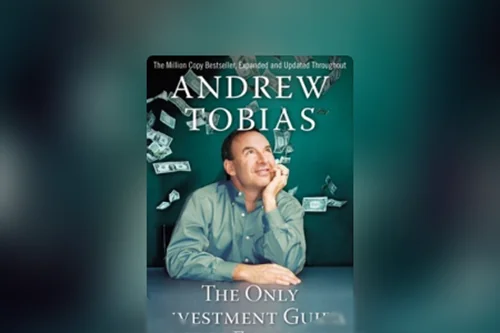Invent and Wander – The Collected Writings of Jeff Bezos
We would have read and heard speeches of Jeff Bezos, Founder of Amazon. I recently read Invent & Wander, The Collected Writings of Jeff Bezos. The book starts with an Introduction by Walter Isaacson. Walter in his introduction writes that Jeff is a voracious reader with an adventurous mind. According to Walter, five things that were crucial for Amazon’s success were
1. Focus on the Long Term,
2. Customer Obsession
3. Avoid Power Point and Slide presentations (Written Notes are a lot better)
4. Focus on the Big Decisions (This is what a leader should do) – As a senior executive you get paid to make a small number of high quality decisions and your job is not to make thousands of decisions every day and
5. Hire the Right People.
Annual Letters:
The book is divided into two parts. Part 1 of the book is the compilation of Jeff’s Annual letters to the shareholders from 1999 (It’s all about the Long Term) to 2019. In 1997 Amazon served over 1.5 million customers with a revenue growth to $147.8 million. The next year, they had 6.2 million customers with a $1 billion revenue run rate.
It is interesting to read each of the letters and see how Amazon has transformed over the years. The reason Amazon started selling books was because of its vast collection (millions of them) that were available. Jeff also solicited customer feedback on what else they should be selling on Amazon. Failed experiments (Firephone) led to the birth of successful products (Kindle, Alexa, Echo). Big Winners pay for thousands of failed experiments. Jeff also writes that to be exceptionally good at something, you need to put in a lot of effort and hard work. This does not come by easily. Jeff as we know does not focus on the competition and instead is customer obsessed. Amazon intends to be the most customer centric company in the world.
Outsized Returns:
Jeff writes that Outsized returns often come from betting against conventional wisdom, and conventional wisdom is usually right. Given a 10% chance of a one hundred percent payoff, you should take that bet every time. Jeff also disagrees with employees. However he disagrees and commits and does not say I told you so if it does not work.
External & Internal Metrics:
In his 2000 Letter Jeff starts with ‘Ouch’. This was during the dotcom bust, Amazon’s stock crashed from $113 to $6. However Jeff was confident as all the internal metrics (Number of customers, profit per unit and more) within the company were going strong. In his 2001 letter Jeff shares insights on stock price. If you know the company’s future cash flows and its future number of shares outstanding, we would get an excellent idea on the fair value of a share of the company’s stock today.
Talent:
The talent depth of Amazon has been the key to its success. In his 2006 letter Jeff writes about many people in the company who have seen $10 million seeds turn into billions of dollars businesses. E.g: You start a new initiative with a seed capital (in Amazon’s scale say $10 M and I am sure it is fun to watch it grow to over $1 billion).
Missionaries:
Jeff writes about Missionaries. People with a mission and purpose and not just a sole goal of making profit. Missionaries build great products and in turn it turns to profit. These are the kind of products and businesses that Jeff likes to invest in. Amazon had never built hardware devices at scale. However to launch Kindle and other products, they needed to build this expertise in-house. They hired a lot of talented (and missionary) people.
In his letters through the years, Jeff writes about the different initiatives right from Prime, Marketplace, production of movies, AWS (Amazon Web Services) and fulfillment centers. He calls AWS the biggest luck where it was such a great thing and they easily were ahead by 5-6 years (no other competitor took notice until a while). Technology is deeply integrated with everything Amazon does. Jeff calls Marketplace, Prime and AWS as its three big ideas. They iterated to get to the marketplace. They tried Auctions and transitioned to Marketplaces. They also invited third party sellers to compete against Amazon selling to customers. It is just not technology, in one of his letters Jeff writes about frustration free packaging.
Career Choice:
Career Choice is an internal program at Amazon where they prepay 95% of tuition for all their employees to take courses for in-demand fields (nursing, airplane mechanic) and these courses may not be relevant to their careers at Amazon. Fulfillment center employees and others make use of this program, learn and they even leave Amazon for other career choices. He writes about Career Choice in quite a few letters. It is great to keep reiterating what is being done.
Setting High Standards:
In his 2017 letter to shareholders, Jeff Bezos wrote about setting high standards at Amazon. Is setting high standards coachable or in-born? It is very much coachable and should be ingrained in the culture. If we see people around us do great things with high standards, we are motivated to do the same.
What if no-one is watching us do the work? Most of the time, in fully remote and distributed environments, no one watches what we do. We are responsible for our own work. We work with high standards not because someone else is watching over us, but because we get great satisfaction from doing it that way.
How long does it take to acquire this skill? It does take a lot of effort. Oftentimes, we underestimate the amount of time it takes to be a great player. For example, if you play chess or tennis at the national level, you can’t just practice for a couple of weeks and say you are going to win a game. You need to work hard, practice and set high standards for yourself.
Jeff also shares another great example of meeting notes (memo). If you just write for an hour or two and think you will have a great meeting, it does not work that way. You have to write, reiterate, share it with your teammates, get inputs and keep refining the content. This is what leads to a great meeting. This is setting high standards.
I might be great at marketing, however if I need to set high standards in writing code, I need to practice. Just because I am good at something, it does not mean that I will set high standards in everything I do. Do not underestimate the time it takes and effort you need to put in to set high standards. When you work with your team, insist on high standards. This will improve your quality of work and the overall quality of the team.
Jeff is curious and also likes to wander. It gives rise to new ideas. Amazon’s Future Engineer program is designed to educate and train low income and disadvantaged young people to pursue careers in Computer Science.
The second part of the book is a compilation of various speeches and interviews of Jeff Bezos. Jeff wanted to be a theoretical physicist and during his Princeton days that he realized that he was not going to be great at it. He wanted to solve a partial differential equation and was struggling. Yosanta at Princeton looked at the problem and provided the solution in a few seconds. Jeff realized that he can’t be great at this and changed paths. Jeff also recalls his conversation with David Shaw (D.E Shaw), the firm he worked before starting Amazon when he ran by his idea of selling books. Though David advised against it (in a good way), Jeff did not want to have regrets when he was 80 years old. He decided to pursue his idea. He also talks about why he bought the Washington Post (He did not want to buy it), however it was a mercenary institution and an important asset that needed to be protected.
Space Mission / Blue Origin:
When Jeff started Amazon, he already had the infrastructure in place which made it easier for Amazon. The US Mail , Personal Computers, Telecommunications, Internet were in place. Companies and Institutions like AT&T, United States Postal Service had invested several billion dollars to get this foundation. Companies like Amazon were able to leverage this well and this is one of the key reasons why Amazon became Amazon. On similar lines, Jeff intends to make good use of his wealth and build the infrastructure for Space exploration and travel. Earth is finite and it needs to be protected. People need to be able to travel at ease to Space and return back to earth. Investments in Blue Origin are investments in infrastructure for space exploration and travel. 100 years from now, it will make it easier for entrepreneurs to leverage the space infrastructure and take it forward.
My take on the book:
It was great to read each of Jeff’s letters from 1999 to 2019. Everything in this book is in the public domain. However I am glad it was all compiled together and made available. Reading through the letters from 1997 to 2019 gives you a sense of what Amazon has accomplished as a company and how it has redefined customer obsession. It’s still Day One.




Leave a Reply